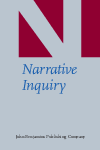
NARRATIVE INQUIRY
Scope & Guideline
Engaging Minds with the Richness of Narrative Inquiry
Introduction
Aims and Scopes
- Interdisciplinary Narrative Research:
The journal emphasizes research that transcends disciplinary boundaries, integrating insights from psychology, sociology, linguistics, and cultural studies to explore how narratives shape and are shaped by social contexts. - Narrative Identity and Agency:
A core focus is on how narrative processes contribute to the formation of identity and agency, examining personal and collective narratives that influence individual and group identities. - Narratives in Health and Well-being:
The journal highlights the significance of narrative practices in healthcare settings, particularly how storytelling can facilitate healing, understanding, and communication between patients and providers. - Cultural and Social Narratives:
Research often investigates the intersection of narratives with cultural and social phenomena, exploring how stories represent and negotiate cultural identities and social issues. - Narrative Methodologies:
The journal promotes innovative narrative methodologies, including narrative analysis and storytelling approaches, that contribute to a deeper understanding of narrative forms and functions.
Trending and Emerging
- Narratives of Migration and Displacement:
Recent publications show a growing interest in narratives surrounding migration, identity transformations, and the experiences of displaced populations, reflecting global socio-political changes. - Narrative and Mental Health:
There is an increasing focus on the intersection of narratives and mental health, particularly in understanding how storytelling can aid in processing traumatic experiences and improving psychological well-being. - Digital Narratives and Social Media:
Emerging themes explore how narratives are constructed and shared in digital spaces, particularly through social media platforms, indicating a shift towards understanding modern storytelling practices. - Narrative Agency and Empowerment:
Research is increasingly examining the role of narrative agency in personal and collective empowerment, highlighting how individuals use storytelling to assert identity and influence social change. - Interdisciplinary Approaches to Narratology:
There is a trend towards applying narratological frameworks across various fields, including healthcare, education, and organizational studies, suggesting a broadening of narrative inquiry's applicability.
Declining or Waning
- Traditional Narrative Structures:
There appears to be a decreasing emphasis on conventional narrative structures and linear storytelling techniques, as researchers increasingly explore non-linear, fragmented, and multimodal narratives. - Historical Narratives:
Fewer studies are focusing on historical narratives as a standalone theme, reflecting a trend towards contemporary issues and the application of narrative inquiry to present-day contexts. - Quantitative Approaches to Narrative Analysis:
While quantitative methodologies have been used in narrative studies, there is a noticeable decline in papers employing purely quantitative analyses, as qualitative and mixed-method approaches gain prominence. - Narratives of Individual Trauma:
The focus on individual trauma narratives, while still relevant, seems to be waning in favor of broader discussions surrounding collective trauma and societal narratives. - Static Narrative Theory:
There is a diminishing interest in static theories of narrative that do not account for the dynamic and evolving nature of narratives in social interactions.
Similar Journals
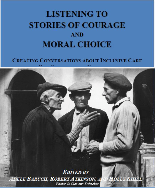
Narrative Works-Issues Investigations & Interventions
Connecting Narratives to Transform UnderstandingNarrative Works: Issues Investigations & Interventions is a distinguished open access journal that delves into the multifaceted world of narrative studies, examining the significance of narrative across various contexts and disciplines. Published by the University of New Brunswick Libraries, Electronic Text Centre (ETC), this journal has dedicated itself to advancing the understanding of narrative as a powerful tool for meaning-making since its inception in 2011. With its commitment to accessibility, Narrative Works invites contributions from researchers, practitioners, and students, fostering a vibrant dialogue around storytelling in literature, media, and everyday life. Although specific metrics such as h-index and Scopus rankings are not available, the journal aims to maintain high academic standards and contribute substantially to the field of narrative inquiry. This platform not only serves as a repository of scholarly research but also encourages innovative discussions and interdisciplinary collaborations that resonate with the ever-evolving narrative landscape.

Departures in Critical Qualitative Research
Unpacking the Layers of Qualitative UnderstandingDepartures in Critical Qualitative Research, published by University of California Press, is an influential journal dedicated to advancing knowledge within the realms of Communication and Linguistics and Language. With its commitment to exploring the complexities and nuances of qualitative research, this journal has quickly established itself as a vital resource for scholars and professionals alike. Although it currently resides in the fourth quartile in Communication and the third quartile in Linguistics, its notable Scopus rankings, including a 64th percentile in Language and Linguistics, highlight its growing significance in the academic discourse. Covering a converged period from 2019 until 2024, the journal seeks to foster innovative and critical perspectives on qualitative methodologies, offering invaluable insights that address contemporary social issues. Access to its content is available to a wide audience, contributing to the journal's reputation as a beacon for those engaged in critical qualitative research.
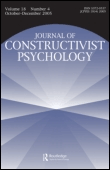
JOURNAL OF CONSTRUCTIVIST PSYCHOLOGY
Advancing Constructivist Insights for Tomorrow's MindsJOURNAL OF CONSTRUCTIVIST PSYCHOLOGY, published by Taylor & Francis Inc, is a leading international journal dedicated to the exploration of constructivist approaches in psychology. With an ISSN of 1072-0537 and an E-ISSN of 1521-0650, this journal serves as a critical platform for researchers, professionals, and students interested in the dynamic intersections of developmental, educational, and social psychology, with a particular focus on linguistic and language frameworks. Over its esteemed publication span from 1994 to 2024, the journal has established itself as influential in the academic community, proudly holding a Q1 ranking in Linguistics and Language, and achieving commendable Q3 rankings in Developmental and Educational Psychology and Social Psychology. The journal's rigorous peer-review standards ensure that each article contributes significant insights to its fields, making it a vital resource for advancing theoretical and practical applications in constructivist methodology. With a solid reputation reflected in its Scopus rankings and percentile standings, JOURNAL OF CONSTRUCTIVIST PSYCHOLOGY continues to shape contemporary discourse and innovation in psychology.

Fictions-Studi Sulla Narrativita
Exploring the Art and Science of Narrative.Fictions-Studi Sulla Narrativita, published by Fabrizio Serra Editore, is an esteemed academic journal dedicated to the exploration of narrative theory and its multifaceted applications within literature and the arts. Since its inception, the journal has become a vital platform for scholars, researchers, and students interested in the intricate structures and theoretical frameworks that underpin narrative forms. With ISSN 1721-3673 and E-ISSN 1724-045X, it aims to bridge contemporary literary discourse with historical perspectives, creating a comprehensive discourse on storytelling methodologies. Although the journal is categorized within the lower quartiles in Scopus rankings, it serves a crucial function in fostering academic dialogue and innovation among emerging voices in the field. The journal's recent convergence years, spanning 2019 to 2023, reflect a growing interest in narrative studies, emphasizing its relevance and responsiveness to current scholarly trends. As an essential resource for those engaged in the arts, humanities, and literary theory, Fictions-Studi Sulla Narrativita invites contributions that challenge conventional narratives and inspire new interpretations of text and storytelling.

FABULA
Fostering Interdisciplinary Insights in LiteratureFABULA is a distinguished academic journal published by WALTER DE GRUYTER GMBH, focused on the fields of Cultural Studies and Literature and Literary Theory. Since its inception in 1958, FABULA has contributed significantly to the discourse surrounding narrative theory, literary analysis, and cultural criticism, positioning itself as a vital platform for innovative research. With a Q2 ranking in Literature and Literary Theory and a Q3 ranking in Cultural Studies for 2023, the journal demonstrates its commitment to high-quality scholarship while fostering interdisciplinary dialogue among researchers and professionals. Although it currently does not offer Open Access options, its rigorous selection process ensures that published works meet the highest academic standards. Located in Berlin, Germany, FABULA remains a crucial resource for scholars seeking to deepen their understanding of the complexities inherent in narrative forms and their cultural implications, supporting ongoing research endeavors from 1964 through 2024.

Narrative Culture
Connecting Cultures Through the Lens of NarrativeNarrative Culture is a distinguished academic journal that explores the multifaceted world of storytelling across various disciplines including Anthropology, Linguistics, and Literary Theory. Published by Wayne State University Press, this journal serves as a platform for rigorous scholarship and innovative research that emphasizes the centrality of narrative in human culture and society. Since its inception in 2014, Narrative Culture has steadily established itself within the academic community, earning a Q3 quartile ranking in both Anthropology and Linguistics, and a Q2 ranking in Literature and Literary Theory as of 2023. Despite its non-open access model, the journal remains committed to disseminating vital research that not only enhances understanding of narrative forms but also fosters interdisciplinary dialogue. With impressive Scopus rankings reflecting its scholarly impact—positioned in the 77th percentile for Literature and Literary Theory—this journal is an essential read for researchers, practitioners, and students who seek to engage with contemporary discussions surrounding narrative practices.

Frontiers of Narrative Studies
Elevating the Conversation on Narrative's Role in SocietyFrontiers of Narrative Studies, published by Walter de Gruyter GmbH, is an essential journal dedicated to exploring the multifaceted dimensions of narrative theory and its applications across various disciplines. With its ISSN 2509-4882 and E-ISSN 2509-4890, this journal serves as a pivotal platform for researchers, professionals, and students interested in the intricate relationships between narrative and culture, literature, and digital media. The journal places a strong emphasis on innovative methodologies and interdisciplinary approaches, making it a vital resource for those seeking to advance their understanding of narrative structures and their significance in contemporary society. Additionally, Frontiers of Narrative Studies encourages open discussions and critical analyses, facilitating a rich dialogue among scholars from various fields. With its commitment to quality and scholarly rigor, this journal is positioned to impact both academic discourse and practical applications in the study of narrative.
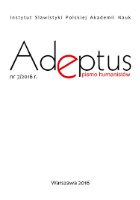
Adeptus
Illuminating the Depths of Slavic Languages and CulturesAdeptus is a pioneering open-access journal published by the Polish Academy of Sciences, Institute of Slavic Studies, specializing in Slavic studies and cultural research. Since its inception in 2014, the journal has aimed to foster scholarly dialogue and advance knowledge across various disciplines related to Slavic languages, literature, history, and sociology. With an ISSN of 2300-0783, Adeptus has positioned itself as a vital resource for researchers, professionals, and students engaged in Slavic studies, offering a platform for high-quality, peer-reviewed articles that explore diverse topics within the field. The journal's open-access model promotes accessibility and dissemination of knowledge, making it a significant contributor to the academic landscape. Located in Warsaw, Poland, Adeptus continues to thrive as a key outlet for innovative research, inviting submissions that embody rigorous scholarship and insightful perspectives.

Human Arenas
Pioneering Research at the Heart of Human Experience.Human Arenas, published by SPRINGER NATURE, is a distinguished academic journal that explores interdisciplinary insights at the intersection of the arts, humanities, social sciences, and psychology. Since its inception in 2018, the journal has quickly established itself, achieving notable rankings in 2023, including Q2 in Arts and Humanities (miscellaneous) and Q3 in Psychology (miscellaneous), reflecting its commitment to high-quality research and the promotion of innovative ideas. With an impressive Scopus ranking, particularly in Psychology where it holds the rank of #32 out of 97, Human Arenas serves as a platform for researchers, professionals, and students to disseminate their findings and engage with contemporary issues relevant to human behavior and societal dynamics. While Human Arenas offers traditional access options, it remains influential in nurturing scholarly discourse globally, especially in the Netherlands where it is proudly published. With its evolving scope set to encompass emerging topics until 2024, the journal stands as a vital contributor to the academic community, paving the way for future exploration and collaboration.
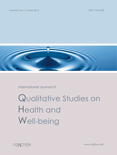
International Journal of Qualitative Studies on Health and Well-Being
Elevating qualitative research for a healthier tomorrow.International Journal of Qualitative Studies on Health and Well-Being is a premier academic platform, published by Taylor & Francis Ltd, that has been dedicated to advancing the field of health and well-being through qualitative research since its inception in 2006. With an Open Access model, the journal ensures that vital research findings are accessible to a global audience, fostering greater collaboration and innovation among scholars, practitioners, and students alike. Recognized for its robust impact within the academic community, it boasts a commendable Q1 classification in Fundamentals and Skills and ranked #3 in Nursing related to this category, demonstrating its commitment to publishing high-quality and impactful research. Additionally, the journal holds strong positions in areas such as Gerontology and Health Policy, making it a critical resource for those studying the multifaceted aspects of health. With a focus on ethical considerations and legal aspects of healthcare, it invites submissions that can contribute to the ongoing dialogue surrounding health policies and practices. Situated in Oxon, England, the journal's multidisciplinary approach is essential for guiding research that will influence future practices in the healthcare sector.